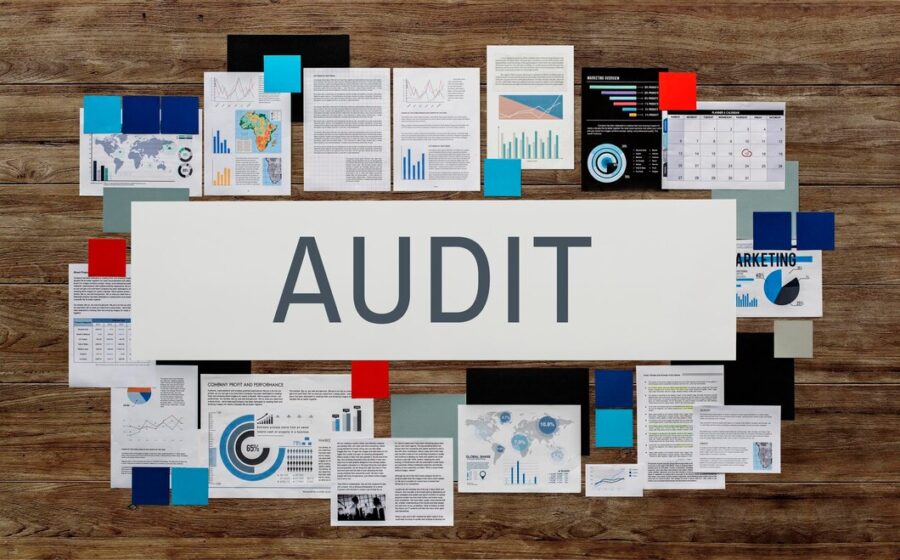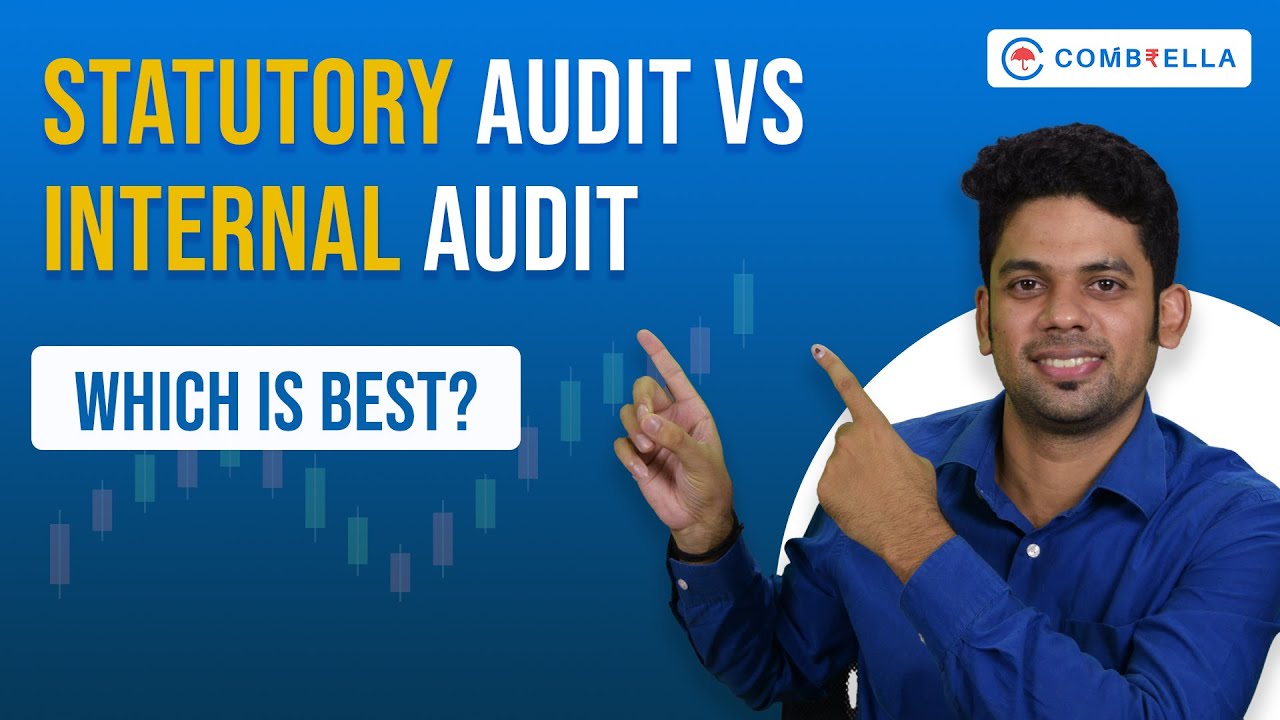Audit under GST
- 22 Aug 24
- 12 mins

Audit under GST
Key Takeaway
- The GST audit is mandatory for businesses with an annual turnover exceeding a specified threshold to ensure compliance with GST provisions and accuracy in financial reporting.
- Chartered Accountants (CAs) and Cost Accountants are typically eligible to serve as statutory auditors due to their expertise in financial and regulatory audits.
- Certain individuals, such as employees or significant debtors of the company, are disqualified from being appointed as statutory auditors to maintain independence and objectivity.
- The statutory audit procedure involves meticulous planning, risk assessment, execution of audit procedures, completion and review, and detailed reporting to ensure the integrity of financial statements.
- Statutory auditors focus on the overall financial health and regulatory compliance, while tax auditors specifically verify the accuracy of tax returns and ensure adherence to tax laws.
Introduction to GST Audit
Goods and Services Tax (GST) has revolutionized the indirect taxation system in India, introducing a more unified and streamlined approach. A key component of ensuring compliance under GST is the GST audit. This audit is mandated to ensure that the financial records and statements of a business align with the GST provisions. It involves a thorough examination of various documents, such as GST Returns, financial statements, and other related records, to verify the accuracy and correctness of the reported information.
The GST audit is conducted annually and is obligatory for businesses whose aggregate turnover exceeds a specified threshold. The primary goal is to ensure that the taxable person has complied with all GST rules and regulations, and to identify any discrepancies or areas of non-compliance. The audit process includes reviewing the filing of returns, verifying tax payments, and ensuring proper maintenance of records. The outcome of the GST audit is documented in an audit report, which is submitted to the GST authorities. This report helps in identifying any potential issues and taking corrective actions.
Who can be Appointed as Statutory Auditor?
A statutory auditor is crucial for ensuring the integrity of a company’s financial statements. In India, Chartered Accountants (CAs) and Cost Accountants are typically eligible for appointment as statutory auditors.

These professionals possess the requisite knowledge and skills to perform a comprehensive financial audit and ensure compliance with regulatory requirements. The appointment of a statutory auditor is generally made by the shareholders during the annual general meeting, based on the recommendation of the Audit Committee.
The statutory auditor's responsibilities include conducting an external audit of the company's financial records, preparing an audit report, and ensuring that the financial statements provide a true and fair view of the company's financial position. They must adhere to the statutory audit method and comply with auditing standards and guidelines. Their role is critical in building stakeholder confidence, as they provide an independent and objective assessment of the company’s financial health.
Persons Disqualified for Appointment as Auditor
While several professionals are eligible to be appointed as statutory auditors, certain individuals are disqualified from holding this position. These disqualifications are outlined in the Companies Act and other relevant regulations to ensure the auditor's independence and objectivity. Key disqualifications include:
- A person who is an employee or officer of the company
- A person who is a partner or in the employment of an officer or employee of the company
- A person who owes more than a specified amount to the company
- A person who holds any security of the company
- A person who is disqualified under any other law for the time being in force
These disqualifications help maintain the integrity of the audit process, ensuring that the auditor remains unbiased and independent from the audit client.
Statutory Audit Procedure
The statutory audit procedure is a structured process designed to ensure that a company’s financial statements provide a true and fair view of its financial position. This procedure is comprehensive, involving multiple stages and meticulous planning to verify the accuracy and completeness of financial records.
Here’s a detailed look at each stage of the statutory audit procedure
1. Planning and Risk Assessment : The first step in the statutory audit procedure is planning and risk assessment. This involves understanding the client’s business, its environment, and the industry in which it operates.
Key activities during this stage include:

Understanding the Business: The auditor gains insights into the company’s operations, its business model, and the key processes involved. This understanding helps in identifying areas that may be prone to risks or errors.
Assessing Internal Controls: The auditor evaluates the effectiveness of the company’s internal control systems. Effective internal controls reduce the risk of material misstatements in the financial statements.
Risk Assessment: Based on the understanding of the business and internal controls, the auditor identifies and assesses the risks of material misstatements. This includes considering factors such as industry-specific risks, regulatory requirements, and economic conditions.
2. Developing an Audit Plan: Once the risks are assessed, the auditor develops a detailed audit plan. This plan outlines the audit strategy, including the nature, timing, and extent of audit procedures to be performed.
Key components of the audit plan include:
Materiality: Determining the materiality levels for the audit, which helps in focusing on significant areas that could influence the users’ decisions based on the financial statements.
Audit Procedures: Designing specific audit procedures to address identified risks. These procedures may include tests of controls and substantive procedures.
Resource Allocation: Allocating resources, including audit staff and time, to ensure the audit is conducted efficiently and effectively.
3. Execution of Audit Procedures: The execution phase involves performing the planned audit procedures to gather sufficient and appropriate audit evidence.
This phase includes:
Tests of Controls: Evaluating the effectiveness of the company’s internal controls by performing tests such as walkthroughs, observations, and inspections. Effective internal controls reduce the risk of material misstatements.
Substantive Procedures: Performing detailed testing of financial transactions and balances. This includes:
Verification of Transactions: Checking the accuracy and completeness of financial transactions recorded in the books of accounts.
Analytical Procedures: Analyzing financial ratios and trends to identify any unusual or unexpected variations.
Inspection of Documents: Reviewing supporting documents such as invoices, contracts, and bank statements to verify the authenticity and accuracy of transactions.
Confirmation: Obtaining direct confirmations from third parties, such as banks and customers, to verify account balances and transactions.
💡If you want to pay your GST with Credit Card, then download Pice Business Payment App. Pice is the one stop app for all paying all your business expenses.
4. Completion and Review: After executing the audit procedures, the auditor reviews the findings and forms an opinion on the financial statements.
This stage involves:
Review of Work Papers: Ensuring that all audit procedures have been completed and documented adequately. This includes reviewing work papers prepared by the audit team to confirm that sufficient and appropriate evidence has been obtained.
Evaluating Adjustments: Considering any necessary adjustments to the financial statements identified during the audit. This includes ensuring that any misstatements are corrected and adequately disclosed.
Assessing Going Concern: Evaluating whether the company can continue as a going concern for the foreseeable future. This involves reviewing cash flow forecasts, financial stability, and other relevant factors.
5. Reporting: The final stage of the statutory audit procedure is reporting. The auditor prepares the audit report, which includes the auditor’s opinion on the financial statements.
Key aspects of the reporting phase include:
Audit Opinion: Formulating the audit opinion based on the evidence obtained. The opinion can be unqualified (clean), qualified, adverse, or a disclaimer of opinion, depending on the findings.
Audit Report: Drafting the audit report, which includes the auditor’s opinion, the basis for the opinion, and any other relevant disclosures. The report is addressed to the shareholders and other stakeholders.
Communication with Management: Discussing the audit findings with the company’s management and the Audit Committee. This includes highlighting any significant issues identified during the audit and recommendations for improvement.
6. Follow-up: Post-audit follow-up involves monitoring the implementation of the auditor’s recommendations and ensuring that any identified issues are addressed by the company.
This may include:
Management Letter: Providing a detailed letter to management outlining the findings, recommendations, and areas for improvement.
Action Plan: Collaborating with management to develop an action plan to address the identified issues and enhance internal controls.
Can a Statutory Auditor do a GST Audit?
A statutory auditor, such as a Chartered Accountant, is well-equipped to conduct a GST audit due to their expertise in financial and tax audits. However, the GST audit requires specialized knowledge of GST laws and compliance requirements. Therefore, while a statutory auditor can perform a GST audit, they must ensure they are well-versed in GST regulations and guidelines.
It is common for companies to appoint the same auditor for both statutory and GST audits to maintain consistency and leverage their understanding of the company's financial practices. However, it's essential to note that the GST audit has its specific procedures and reporting requirements, which the auditor must adhere to diligently.
Statutory Auditor and Tax Auditor
The roles of a statutory auditor and a tax auditor are distinct yet complementary. The statutory auditor focuses on the overall financial health of a company, ensuring that financial statements present a true and fair view. They conduct a comprehensive review, including external audits and regulatory compliance checks.
On the other hand, a tax auditor specializes in verifying the accuracy of a company's tax returns and ensuring compliance with tax laws. They prepare a tax audit report, which is crucial for identifying any discrepancies in tax filings and ensuring proper tax payments. Both auditors play a critical role in maintaining the financial integrity and compliance of a company.
Limitations of Statutory Audit
While statutory audits are essential for ensuring financial accuracy and compliance, they do have limitations. These include:
- Scope of Work: Statutory audits primarily focus on financial statements and may not cover all aspects of a company’s operations.
- Reliance on Information Provided: Auditors rely heavily on the information provided by the company’s management, which can sometimes be incomplete or misleading.
- Timing: Statutory audits are usually conducted annually, which means they may not capture real-time issues or irregularities.
- Cost and Time: Conducting a thorough statutory audit can be time-consuming and costly, especially for smaller businesses.
- Potential Conflicts of Interest: Despite disqualification rules, there is always a risk of perceived or actual conflicts of interest.
Understanding these limitations helps in appreciating the importance of a multi-faceted approach to audits, including internal audits and periodical reviews, to ensure comprehensive financial oversight.
FAQs
Can a statutory auditor do a GST audit?
Can statutory auditor and tax auditor be the same?
Can an internal auditor be a GST auditor?
Can statutory auditor be internal auditor?
Who Cannot be an internal auditor?
An employee or officer of the company, as their independence could be compromised.
A person with significant financial interests in the company, as this could lead to biased assessments.
Any individual who holds a conflicting role that might impair their ability to conduct an unbiased internal audit.
The internal auditor must remain impartial and objective, free from any conflicts of interest that could affect their judgment.
Who Cannot be appointed as statutory auditor?
An officer or employee of the company.
A person who is a partner or in the employment of an officer or employee of the company.
A person who owes more than a specified amount to the company.
A person who holds any security of the company.
A person who is disqualified under any other law for the time being in force.
Any individual with close personal relationships with key management personnel of the company, as this could impair their independence.




















